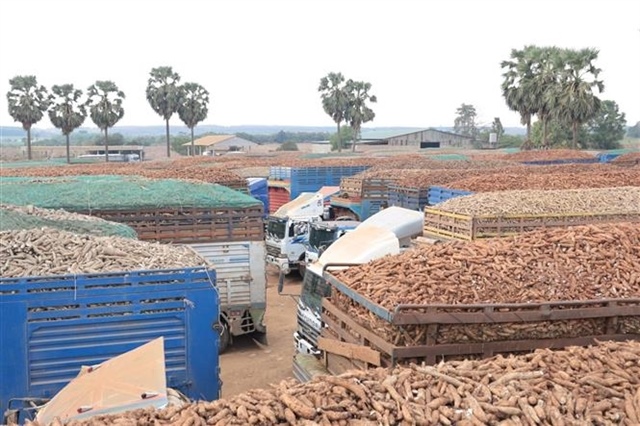Viet Nam to promote seafood exports to Brazil
Viet Nam to promote seafood exports to Brazil
Brazil holds a lot of potential as an export market for Viet Nam’s seafood products now and in the future, according to the Viet Nam Association of Seafood Exporters and Producers (VASEP).

Viet Nam has become one of the three largest white-fleshed fish suppliers for Brazil, with the export value of tra fish to the market reaching US$104.7 million in 2017, up 54 per cent against 2016.
The VASEP said Brazil, which has annually imported more than $1 billion in seafood products since 2012, is now one of the largest markets for Viet Nam’s tra fish.
This is a highly potential market in South America for Viet Nam’s seafood products, especially tra fish, according to the association.
Viet Nam’s exports of seafood products to Brazil have risen over the past few years. In the first months of 2018, Brazil was still one of the most important markets of Viet Nam’s tra fish.
The situation is attributable to the fact that Vietnamese exporters have faced difficulties in selling their seafood products to traditional markets such as the US and EU.
However, processors and exporters said they have also faced obstacles and risks in exporting seafood products to Brazil because the market has applied strict regulations on quality standards and technical barriers to protect Brazilian producers. Therefore, the market share of Vietnamese seafood products has remained small.
The Ministry of Agriculture and Rural Development (MARD) has paid attention to promoting negotiations with the Brazilian side, towards making it easier for Vietnamese seafood products to enter the market.
MARD’s Department of Animal Health recently asked VASEP to point out difficulties that Vietnamese enterprises have met in exporting seafood products to Brazil.
VASEP Vice General Secretary To Thi Tuong Lan said the department should help seafood processing and trading firms update Brazil’s import information and regulations as quickly as possible, as well as identify risks relating to trade protection.
It is necessary to have measures to prove that shrimp from Viet Nam do not pose infection risks to shrimp in importing countries, she said.
Recently, during his visit to Brazil, Deputy Prime Minister Vuong Dinh Hue also asked the Brazilian government to create favourable conditions for Vietnamese seafood processing and trading businesses to export their products such as tra fish, basa fish and shrimp to this country.
Viet Nam’s seafood exports reached a value of nearly $4 billion in the first half of this year, up 12.3 per cent year-on-year, according to VASEP.
Companies have predicted that seafood exports would keep growing over the second half of this year thanks to an increase in demand. Several domestic processing enterprises have signed contracts for major holidays later this year.




















